Saudi Arabia and its allies have a seemingly overwhelming military advantage over their Houthi enemies in Yemen. Despite this advantage, the Saudi-led coalition has been unable to force the Houthis to the bargaining table. Their strategy in the ongoing battle for Hodeidah seeks, desperately, to change the equation.
The Houthis are a militia with no air force or navy. Their ground forces are equipped with small arms, primarily. They have acquired tanks and other heavy weapons from the depots of the former Yemen army. They get some training and expertise from Iran and Hezbollah. Their ballistic missile capabilities are partly indigenous and partly assisted by Iran, as well. There is no estimate available of their defense spending, but the country is destitute and faces severe malnutrition and disease. Always the poorest Arab state, Yemen today—especially Houthi-controlled Yemen—is going backward economically as its infrastructure is systematically destroyed by the Saudi-led coalition.
The Royal Saudi Air Force has now conducted 100,000 bombing sorties in Yemen. It and its coalition allies have hundreds of high performance jet aircraft and helicopters. The United States and the United Kingdom are the major arms suppliers. The Saudi navy—backed by Egypt, the United Arab Emirates, and other states—controls access to Yemen’s ports and has slowed the delivery of food and medicine, according to Amnesty International. Over eight million Yemenis are at severe risk of starvation as a consequence. According to the International Rescue Committee, 50,000 died from cholera last year alone.
The Saudi ground forces, the regular army, and the national guard are very well equipped, with state-of-the-art tanks, infantry fighting vehicles, and attack helicopters. But the Saudi ground forces have largely avoided combat in Yemen. They have done poorly in more than a decade of conflict with the Houthis. The coalition instead relies on various Yemeni militias, backed by the Emiratis and Sudanese.
Saudi Arabia was the third-largest military spender in the world in 2017, at almost $70 billion, according to the Stockholm International Peace Research Institute. The UAE’s military budget is so opaque that SIPRI could not provide an estimate, but it is certainly large. By contrast, Iran spent less than $15 billion.
The imbalance in power between the two sides is overwhelming. But the war is now almost three-and-a-half years old—and the Houthis still control Yemen’s capital Sanaa, and a majority of Yemenis live in the area under their control. The coalition forces have barely touched northern Yemen’s high ground, where the Houthis enjoy their strongest popular support. The war is a very expensive burden for the kingdom, a humanitarian catastrophe for Yemen, and a geostrategic advantage for Iran.
The war is a very expensive burden for the Kingdom, a humanitarian catastrophe for Yemen, and a geostrategic advantage for Iran.
The coalition’s attempt to seize the crucial port of Hodeidah, called Operation Golden Victory, is intended to break the stalemate. Hodeidah is the largest port in northern Yemen and over three-quarters of the food and medicine imported to the north arrives in Hodeidah. It is a major source of revenue for the Houthis. The coalition hopes that if it takes the port out of Houthi hands, either into its own control or over to a United Nations neutral authority, the rebels will come to a negotiated settlement of the war.
For the Saudis, that means a settlement based on United Nations Security Council resolution 2216, which means restoring the government led by President Abdo Mansour Hadi to power in Sanaa. The Houthis would need to withdraw, handing over heavy weapons. The Hadi government has little support in Yemen, even in the areas controlled by the coalition. The Security Council rejected a Swedish proposal this month for a simple ceasefire resolution and tilted again in favor of the Saudi position. The U.N. has imposed an arms embargo on the Houthis, but none on the coalition.
The U.N.’s Special Envoy for Yemen is trying to promote a proposal to make Hodeidah a neutral port under international supervision. It would be a means to avoid a catastrophic battle, but it’s unclear if either of the warring parties are ready for de-escalation.
The U.N. needs to replace UNSCR 2216 with a more balanced resolution to set the stage for political reconciliation. It should hold all the parties accountable for their actions, not just the Houthis. The Houthis are intransigent and their missile attacks are dangerous threats to civilians, but they are not the only party nor the primary party guilty of war crimes.
The coalition wants to avoid a house-by-house battle for control of the city, which would be disastrous for humanitarian assistance and catastrophic for the half-million residents. The Zaydi Shiite Houthis are probably less concerned about the fate of the mostly Sunni city. A siege of the city will be a public relations disaster for the Saudis and Emiratis.
After two weeks, Operation Golden Victory has wrested control of the airport south of Hodeidah from the Houthis. The next objective is probably to cut the highway linking Hodeidah to Sanaa which would isolate the city. The Houthis fired two ballistic missiles at Riyadh on Sunday in retaliation for Golden Victory.
The war is the signature foreign policy initiative of King Salman and his son Crown Prince and Defense Minister Mohammed bin Salman. The crown prince has blemished his reputation by the reckless decision to intervene in Yemen and the humanitarian catastrophe it created. His important but still modest social reforms at home, like letting women drive, should be compared to the enormous cost of the Yemeni disaster.
The Brookings Institution is committed to quality, independence, and impact.
We are supported by a diverse array of funders. In line with our values and policies, each Brookings publication represents the sole views of its author(s).

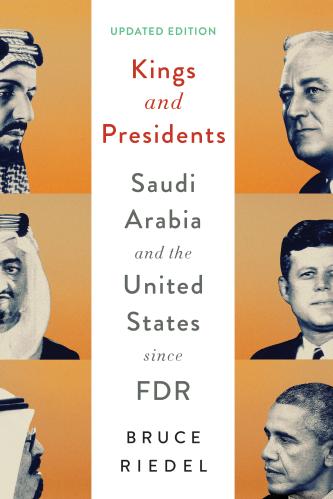
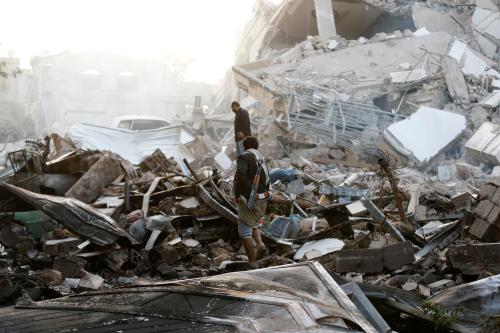

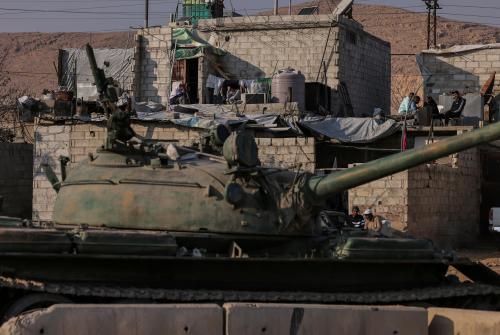
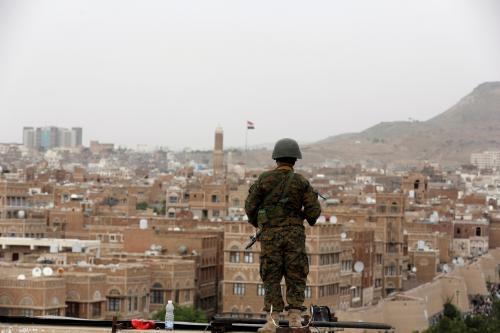
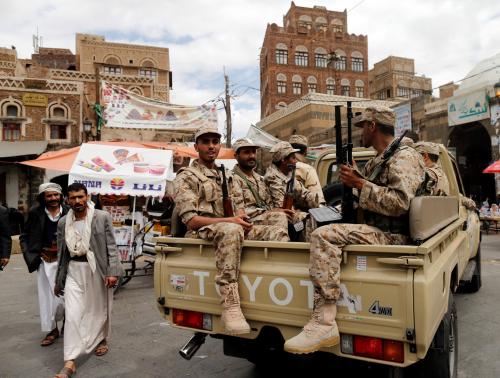
Commentary
Amid a brutal stalemate in Yemen, the United Nations must act
June 25, 2018